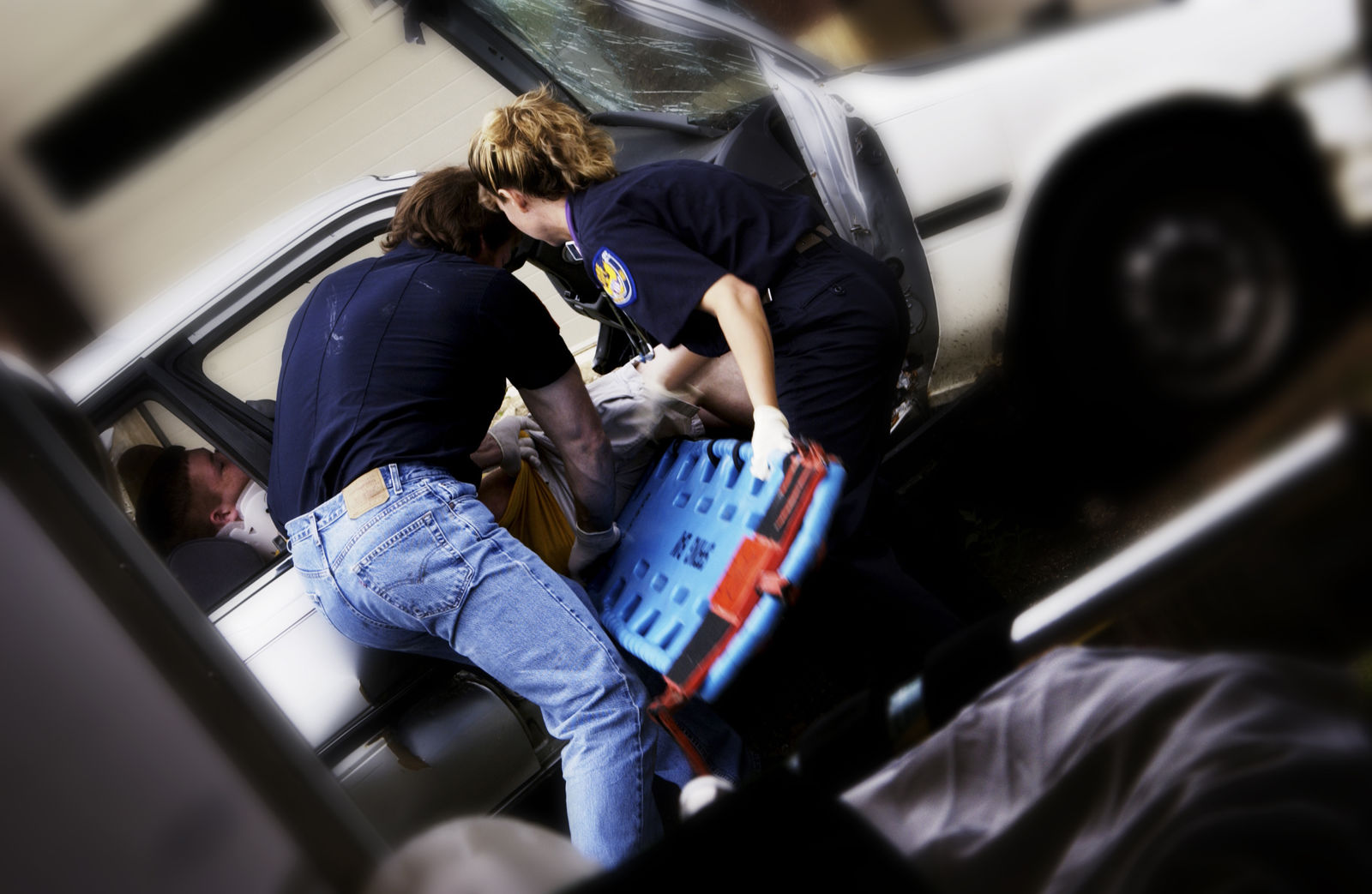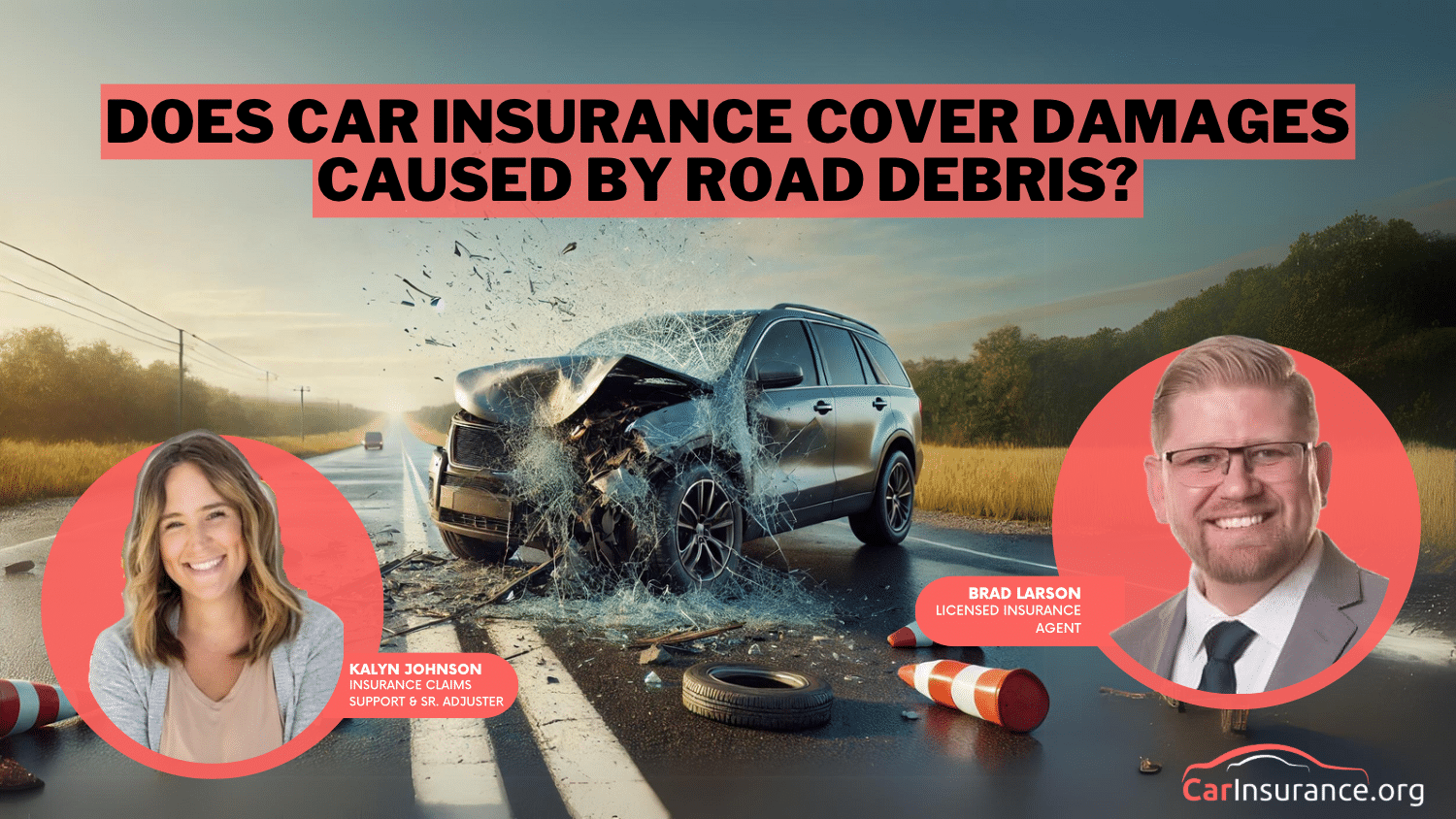Do I Really Need to Call the Police or File a Claim After an Accident?
Secured with SHA-256 Encryption




Table of Contents
Table of Contents


Insurance Feature Writer
Rachel Bodine graduated from college with a BA in English. She has since worked as a Feature Writer in the insurance industry and gained a deep knowledge of state and countrywide insurance laws and rates. Her research and writing focus on helping readers understand their insurance coverage and how to find savings. Her expert advice on insurance has been featured on sites like PhotoEnforced, All...
Rachel Bodine


Licensed Insurance Agent
Eric Stauffer is an insurance agent and banker-turned-consumer advocate. His priority is educating individuals and families about the different types of insurance coverage. He is passionate about helping consumers find the best coverage for their budgets and personal needs. Eric is the CEO of C Street Media, a full-service marketing firm and the co-founder of ProperCents.com, a financial educat...
Eric Stauffer
Updated March 2025
When the damage to a vehicle exceeds what you’d pay in your deductible, filing an auto insurance claim with your auto insurance provider makes sense. But for minor accidents and fender benders, it may seem that going through an insurer, filing a claim, and filing a police report is too much work for the return. For example, it’s hard to rationalize filing a claim for which you have a $500 deductible if you have only $300 in damage, a scratch in paint, a broken headlight, or a small dent. Especially as some claims can raise your insurance rates.
Additionally, if you don’t have the proper type of coverage to pay for damages, it may be pointless to file a claim. But choosing not to file a claim with the police and insurer can be a risky decision, especially if there is another driver involved in the accident or if you are still financially responsible for the vehicle.
Why is it risky to handle an accident alone?
You don’t have the authority to hold other drivers accountable.
When you’re involved in an accident with another driver, you don’t know that they will be true to their word. It sounds cynical, but if another driver promises to pay out of pocket for damages and asks to settle without filing a police report or insurance claim, you can’t guarantee that they have the money or will pay as promised. You don’t know that the personal information they provide is correct, and in general, it could put you at risk of paying for all of the damage to your car out of pocket. This is true even for a minor fender bender.
If you don’t file accident reports at the scene of your auto accident, you may not have enough evidence for your claim if the at-fault driver flakes.
You might overlook an important detail or piece of evidence you need for the insurance claim process.
Unless you are an expert, it’s possible that you are missing the extent of damage in your initial assessment of a motor vehicle accident. The claims adjuster needs to take a look, or else you may be out of luck at the repair shop when the estimated cost of repairs is way off. Something that may look like a small scratch or dent could actually be something much bigger, so it may benefit you to pay your insurance deductible instead of out-of-pocket costs for damages. (For more information, read our “What if you can’t pay your deductible?“).
Drivers with car loans might need to show proof of repairs.
If you are still making payments on your vehicle, and you are involved in an accident in which the police arrive and file a police report, your auto lender will be notified of the incident. Subsequently, you may be required to provide proof of repairs to your lien holder.
You have an obligation to your insurer to allow them to investigate vehicle damage claims soon after the accident.
If you are at fault in the accident, you must report the damage to your insurance company in a timely manner so they can investigate the claim, inspect the damage, and manage the other driver’s injuries or damages. If you delay this process, they could reasonably deny your insurance claims, leaving you on the hook for the other driver’s damages as well as your own.
If you believe you undergo medical treatment or have other reason to file a personal injury claim, consult the most experienced personal injury attorneys you can find. A personal injury lawyer can tell you everything you need to know about filing a lawsuit if necessary.
How do you file an accident claim?
After you have exchanged information with the other driver, taken photos of the vehicle damage and the accident scene, it’s time to contact your insurer. If your accident was anything more than a tiny scratch or a broken side-view mirror, you should report your accident to your insurance company as soon as possible. Here’s what you can expect as you begin the claims process:
- When you call your insurance company, you will need to have information about the other driver, vehicle damage, injuries, and witnesses. Keep the police report on hand as a reference.
- You will likely tell and retell the sequence of events leading up to and during the accident several times during this process. In order to provide the most accurate information possible, you should write down the details of the wreck as soon as possible. You’ll want the events to remain clear in your mind and to retell the details correctly each time.
- During your initial phone call, your insurance agent or a company representative will most likely talk to you about getting a vehicle inspection and damage estimate or appraisal, reserving a rental car if necessary and if your coverage allows for one, towing assistance, and payment options.
Read more: Is a broken side mirror covered by car insurance?
Your insurance company will review all of the paperwork, police reports, and testimonies from both parties before determining which driver was at fault. Fault can be solely on one driver or can be split between drivers. Depending on your auto insurance policy, you may be reimbursed for your deductible if you were deemed not at fault. If you were found at fault, you will likely have to pay your deductible, and possibly more if court costs and other legal fees or traffic tickets are involved.
Once you’ve filed your insurance claims, you will have a team of people from your auto insurance companies assigned to your case to determine fault, work with the other person’s insurance company, help you find a good body shop, acquire payment, and ensure your car is repaired properly. They will also monitor and investigate claims filed against you in the accident and work with the other driver’s insurance company to negotiate a deal that has your best interests in mind.
To ensure you’re covered for every possible scenario, you should invest in auto insurance coverage beyond the state minimum requirements (usually liability coverage). Collision insurance will protect you in the event of an accident regardless of who was at fault. Personal injury protection pays for injuries related to an accident. Comprehensive coverage will pay for damages related to weather or natural disasters, as well as vehicle theft. Uninsured/underinsured motorist coverage ensures you are protected if you get into an accident with someone who has no, or very little, insurance. If you have GAP insurance, your insurance carrier may pay off your car loan if your vehicle is totaled. Your insurance rate will increase as you add these types of coverage, but you will have peace of mind.
Rates vary from company to company. Shop around for the lowest rate, as you may be able to find a cheaper policy with a different insurer.
Get a FREE Quote in Minutes
Insurance rates change constantly — we help you stay ahead by making it easy to compare top options and save.

